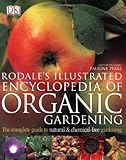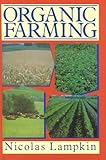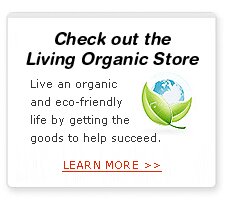Living Organic Online Store
The Self-Sufficient Life and How to Live It
The Self Sufficient Life and How to Live It is the only book that teaches all the skills needed to live independently in harmony with the land harnessing natural forms of energy, raising crops and keeping livestock, preserving foodstuffs, making beer and wine, basketry, carpentry, weaving, and much more. Our 2009 edition includes 150 new full-color illustrations and a special section in which John Seymour, the father of the back to basics movement, explains the philosophy of self-sufficiency and its power to transform lives and create communities. More relevant than ever in our high-tech world, The Self Sufficient Life and How to Live It is the ultimate practical guide for realists and dreamers alike.
Related Products
Farming with Nature: The Science and Practice of Ecoagriculture
A growing body of evidence shows that agricultural landscapes can be managed not only to produce crops but also to support biodiversity and promote ecosystem health. Innovative farmers and scientists, as well as indigenous land managers, are developing diverse types of "ecoagriculture" landscapes to generate cobenefits for production, biodiversity, and local people. "Farming with Nature" offers a synthesis of the state of knowledge of key topics in ecoagriculture. The book is a unique collaboration among renowned agricultural and ecological scientists, leading field conservationists, and farm and community leaders to synthesize knowledge and experience across sectors. The book examines: the knowledge base for ecoagriculture as well as barriers, gaps, and opportunities for developing improved ecoagriculture systemswhat we have learned about managing landscapes to achieve multiple objectives at a landscape scaleexisting incentives for farmers, other land managers, and investors to develop and invest in ecoagriculture systemspathways to develop, implement, manage, and scale up successful ecoagricultureInsights are drawn from around the world, in tropical, Mediterranean, and temperate environments, from farming systems that range from highly commercialized to semi-subsistence. "Farming with Nature" is an important new work that can serve as a foundation document for planners, farm organizations, researchers, project developers, and policy makers to develop strategies for promoting and sustaining ecoagriculture landscapes. Replete with valuable best practice guidelines, it is a critical resource for both practitioners and researchers in the field.
Rodale's Illustrated Encyclopedia of Organic Gardening
Whether an experienced gardener is looking to go organic or a beginner wants to create a healthy, eco-friendly garden, the Rodale's Illustrated Encyclopedia of Organic Gardening contains the tips and techniques needed to produce beautiful flowers, top-quality herbs, and appetizing, wholesome fruits and vegetables. Explore the latest methods for cultivation without chemicals, discover the benefits of composting, and learn how to maintain an organic garden year-round.
Organic Farming, Revised Edition
The current growth of organic farming is being fuelled by market demand. Nicolas Lampkin's book spells out both the principles underlying organic farming and the practical ways in which farmers can respond. He is particularly concerned with the economics of organic farming - a key point for farmers thinking of converting their land. The first part of his book spells out the principles: soil structure, crop nutrition, management of wastes, rotation design, weed management, pest and disease control, livestock husbandry. In the second part he goes into practical details for livestock systems, grassland and fodder crops, arable and horticultural crops, marketing and processing, physical and financial performance, and the conversion process. Some of the evidence on food quality and environmental impact is also reviewed. This is a guide to a way of farming which aims to be in partnership with the natural world rather than dominating it.





